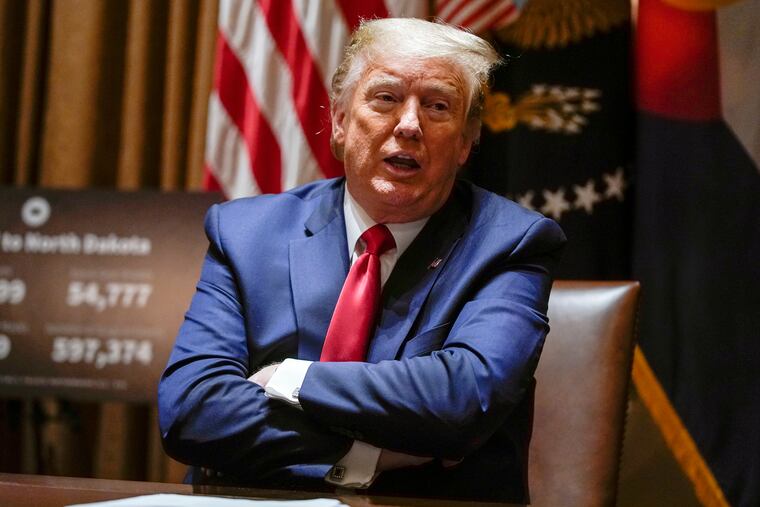The Trump campaign has ‘walked away’ from the Pennsylvania Republican Party as 2020 heats up, sources say
Trump’s visit to Allentown demonstrates just how much he is counting on Pennsylvania to help him win a second term. But he isn’t depending on the state Republican Party to secure that victory.

President Donald Trump’s visit to Allentown on Thursday demonstrates just how much he is counting on swing-state Pennsylvania to help him win a second term in November.
But Trump isn’t depending on the Pennsylvania Republican Party to secure that victory.
Trump’s campaign and the Republican National Committee “walked away” from the state party in late February, according to two GOP consultants who spoke on condition of anonymity because they weren’t authorized to discuss the rift.
The parting of ways includes the Trump campaign and the RNC moving out of the state party’s Harrisburg headquarters and renting their own offices. The two consultants used the phrase “walked away” independently of each other in describing the split, and a third Republican consultant confirmed their assessment.
Rick Gorka, a spokesperson for Trump Victory, the joint effort between the campaign and the RNC, suggested that the national GOP infrastructure Trump directs would limit its work with the state party to “litigation and voter contact tools.”
“As the President’s campaign, with the RNC, builds the biggest state campaign in Pennsylvania in political history, we felt it best to fully operate the program ourselves," Gorka told Clout in an email.
In a statement, Pennsylvania GOP chairman Lawrence Tabas said the state party “works closely” with the Trump campaign and the RNC on the presidential election and down-ballot races.
“Our organizations have and will always advise and support each other,” Tabas said.
Another prominent Republican, who also spoke on condition of anonymity, shrugged off the significance of the breach, noting that Trump’s 2016 campaign also took a go-it-alone approach to Pennsylvania, with fewer resources — and still narrowly won the state.
The GOP consultants cited three sources of friction:
There were tensions about issues like who decided which delegates to the Republican National Convention would be endorsed by the campaign.
There were concerns on the campaign and RNC side the state party wasn’t raising enough money.
And there was residual resentment that Tabas, who took control of the state party in July, had bested Bernadette “Bernie” Comfort, the party vice chairperson favored by Trump’s camp. Comfort, who dropped her bid for the post, was instead named chairperson of Trump’s campaign in Pennsylvania.
The top job was open because former GOP chair Valentino “Val” DiGiorgio III resigned in June, just hours after The Inquirer reported that he had traded sexually charged messages with a Philadelphia City Council candidate. Tabas lost by two votes to DiGiorgio in a 2017 election for chair.
It remains to be seen whether the national party’s financial support for the state party will change. Trump’s campaign had been sending the Pennsylvania party about $95,000 per month for payroll for about 50 employees, field offices, insurance, and typical election costs like setting up voter outreach booths at events, according to federal records and one of the consultants. The RNC had given the state party almost $210,000 from the start of the year through March, the most recent round of campaign finance reports showed.
The consultants said the campaign and RNC also moved out of the state party’s headquarters, down State Street from the Capitol in Harrisburg. But it was not clear if the new offices have been occupied due to stay-at-home orders during the coronavirus pandemic.